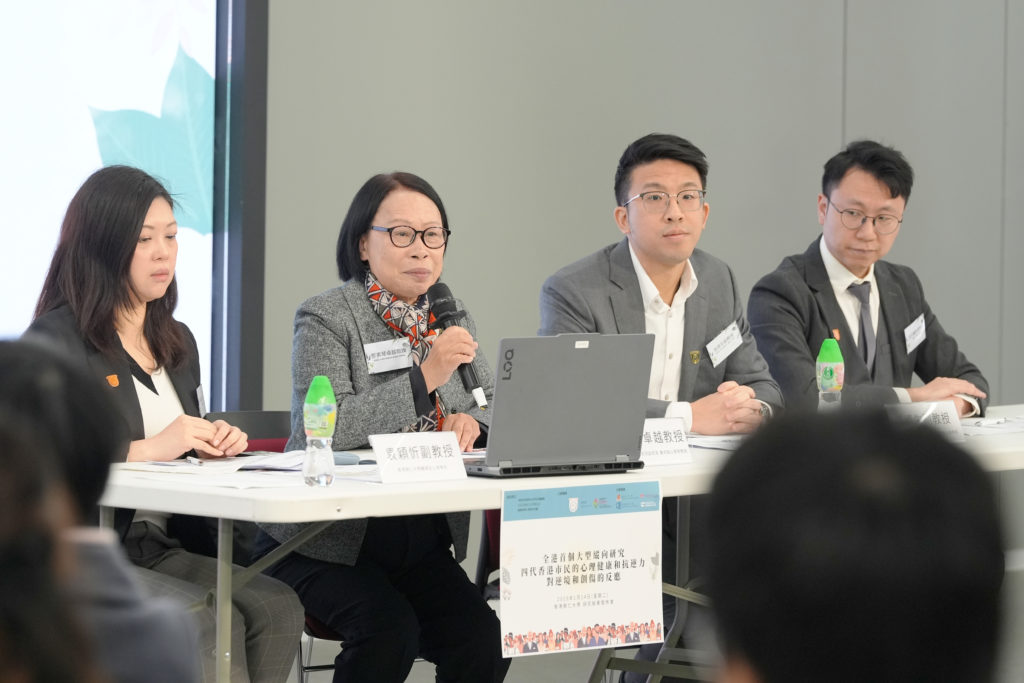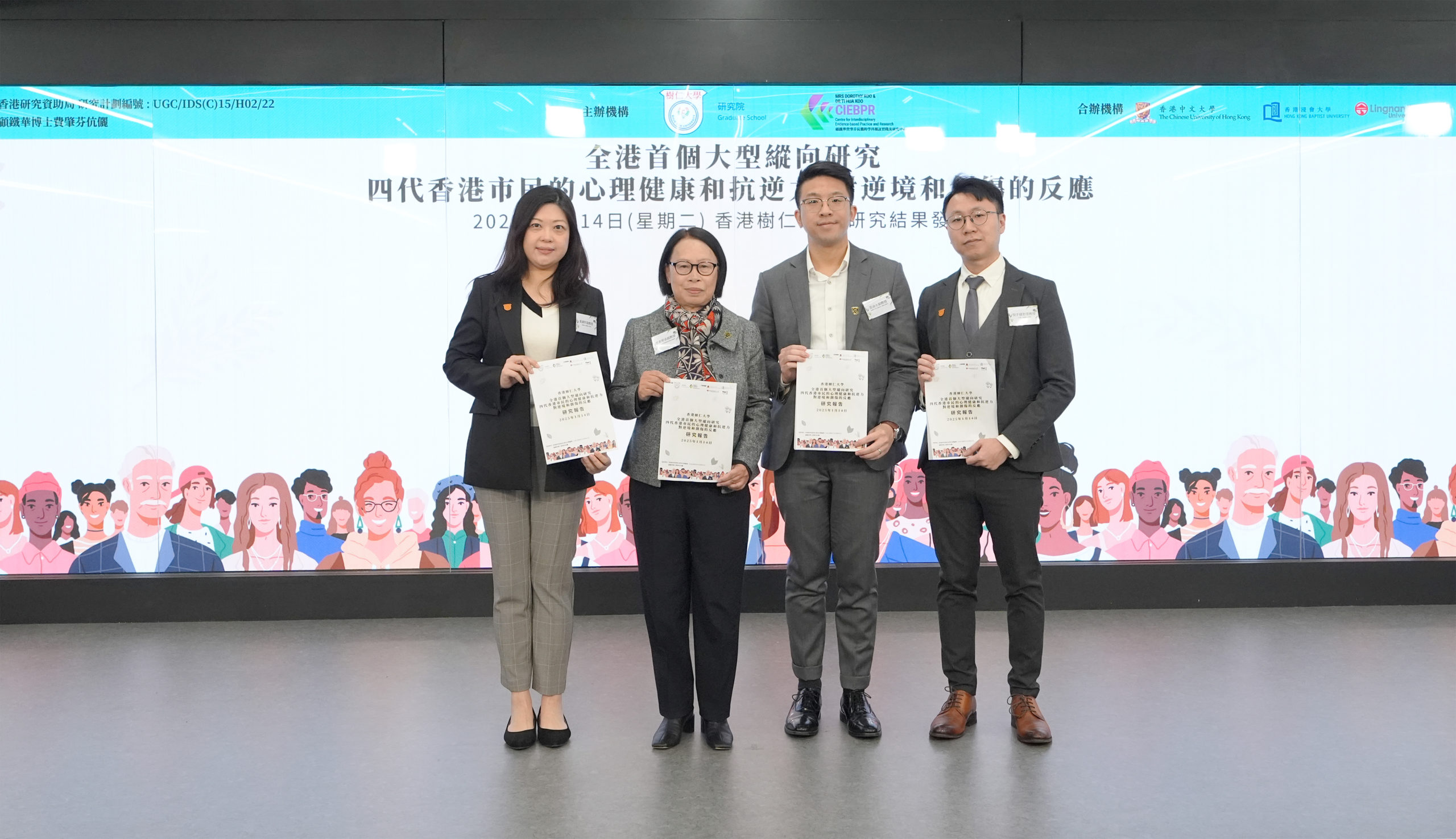On January 14, 2025, Hong Kong Shue Yan University (HKSYU) released findings from the city’s first large-scale longitudinal study on the mental health and resilience of four generations of Hong Kong residents. The study revealed that Generation Z (ages 18 to 27) reported the highest levels of anxiety, depression, and post-traumatic stress symptoms, alongside lower emotional regulation skills and a less positive outlook on life compared to other age groups. The research team urged society to prioritize strengthening resilience at both individual and family levels to support the mental well-being of younger generations.
The study, titled “The First Large-Scale Longitudinal Study in Hong Kong—The Mental Health and Resilience of Four Generations: Responses to Adversity and Trauma”, was conducted by HKSYU’s Mrs Dorothy Koo and Dr Ti Hua Koo Centre for Interdisciplinary Evidence- Based Practice and Research, in collaboration with four other institutions: The Chinese University of Hong Kong, Hong Kong Baptist University, Lingnan University, and the Technological and Higher Education Institute of Hong Kong.
Conducted between 2023 and 2024, the research team surveyed over 10,000 residents through online questionnaires and interviews. Participants included late Baby Boomers (ages 60 to 74), Generation X (ages 44 to 59), Generation Y (ages 28 to 43), and Generation Z (ages 18 to 27).
The study found that approximately 22% of respondents experienced symptoms of stress, 21% reported anxiety, and 17% showed signs of depression. While stress levels were relatively consistent across generations, Gen Z participants reported notably higher rates of anxiety (30.5%) and depression (22.3%), and their scores on emotional regulation, and positive life outlook are also lower than those of other generations.
Dr Jason CHOW Tak-sang, HKSYU Vice President (University Administration) and Associate Professor in the Department of Counselling and Psychology, suggested that these heightened rates could be attributed to Gen Z’s increased willingness to share their emotional struggles, heightened awareness of mental health, and greater openness about personal difficulties.
The study also examined exposure to traumatic events, identifying major incidents such as serious accidents, physical or sexual violence, severe illness, bereavement, and childhood abuse. Trauma rates increased with age, with Baby Boomers reporting the highest lifetime exposure at 83.3%. Gen Z generally experiences fewer traumas compared to other generations, yet13.9% reported experiences of violence — the highest rate across all generations. Notably, 9.4% of Gen Z respondents reported experiencing violence within the past year.
The research team revealed that trauma was closely linked to mental health struggles. Among Gen Z participants who experienced trauma in the past year, 56.5% reported anxiety, 44.7% experienced depression, and 46.3% displayed symptoms of post-traumatic stress disorder (PTSD) — rates significantly higher than other age groups.
The study identified four key protective factors that support mental health during adversity: individual resilience, family resilience, emotional regulation, and a positive outlook on life. Emotional regulation emerged as the most crucial factor. Respondents with stronger protective factors were less likely to experience stress, anxiety, or depression. However, Gen Z scored the lowest across all protective factors, particularly in emotional regulation and maintaining a positive outlook — a trend consistent with international findings.
Dr CHOW highlighted the importance of these protective factors, as the research indicated that personal and family resilience can serve as important buffers for mental health. He suggested special attention should be given to the mental health challenges faced by Gen Z, and recommended social emotional education and resilience training to be incorporated into school curriculum and corporate training programmes.
Professor Catherine TANG So-kum, HKSYU Vice President (Graduate School) and Distinguished Professor of Psychology, highlighted that mental health evolves with age and life stages but the unique social, family, educational, and work challenges faced by each generation must not be overlooked. “We cannot assume that young people will naturally‘ grow out of it,” said Professor TANG.“ Early intervention is crucial. We must act now to support their mental health and ensure they develop the resilience needed to thrive in the face of future challenges.”
A follow-up study is currently underway, with results expected to be released within 12 to 18 months. Professor TANG said the ongoing second phase will consider incorporating Hong Kong-specific elements.

Source: April 2025 Issue
